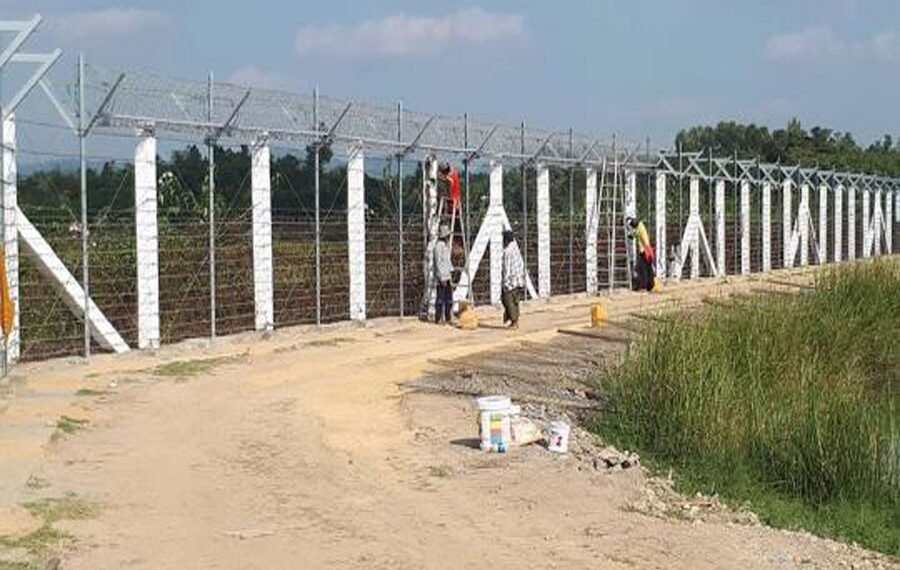Tribal leaders denounce the scrapping of the Free Movement Regime, warning it destroys ancestral ties and threatens borderland survival.
BY PC Bureau
September 29, 2025 — In a bold escalation of tribal resistance, sixteen Kuki-Zo village chiefs along the Indo-Myanmar frontier have jointly declared “total non-cooperation” with the Government of India’s ongoing border fencing project. They made it clear that no land compensation or negotiation will be considered until their political demands are addressed and peace returns to Manipur.
“This is not about money—it is about our rights, our land, and our survival,” the chiefs stated in a sharply worded communiqué issued on Monday.
India has accelerated efforts to fence its 1,643-km border with Myanmar, citing concerns over illegal migration, cross-border insurgency, and smuggling. Earlier this year, New Delhi scrapped the Free Movement Regime (FMR), a decades-old arrangement that allowed residents within 16 km of the border to travel visa-free for up to two weeks.
READ: Analysis: Fatal Inaction — Nagaland 11 Years, Ladakh 5, Manipur 2
While the government defends the moves as essential for national security, tribal communities argue that the fencing severs ancestral ties, disrupts traditional livelihoods, and erases cultural linkages that have existed for centuries. For many, the border is not a line of separation but a shared homeland where families and clans straddle both sides.

Tribal Opposition Builds
The chiefs’ statement denounced the fencing drive and the end of FMR as “direct assaults” on the identity, mobility, and ancestral lands of borderland communities. It reminded New Delhi that repeated press releases, memorandums, and rallies by the Kuki-Zo people had already conveyed strong opposition, but their voices were ignored.
They also pointed out that the United Naga Council (UNC) had raised similar objections in consultations with the government, yet “no consensus result” was achieved, underscoring a broader tribal rejection of the project.
Non-Cooperation Declared
Declaring a policy of outright defiance, the chiefs categorically announced:
- No acceptance of land compensation.
- No participation in negotiations.
- No recognition of fencing activities until a political solution is secured.
They further demanded the immediate suspension of fencing work in affected villages and the withdrawal of forces and equipment from construction sites to prevent “avoidable confrontation.”
READ: Ladakh Students to MHA: Ensure Fair Probe, Free Wangchuk
“This is not merely a compensation issue—it is a fight for our political rights and the protection of our people on the Indo-Myanmar frontier,” the statement concluded.
The joint stand of the sixteen chiefs marks the most uncompromising opposition yet from tribal leadership. It sends a stark warning to New Delhi that pushing ahead with fencing without addressing political concerns risks igniting deeper unrest in a state already battered by nearly two years of ethnic conflict between the Meitei and Kuki-Zo communities.
With trust in government institutions already frayed, the chiefs’ defiance signals not just resistance to a project but a broader struggle over land, identity, and survival in Manipur’s volatile borderlands.













